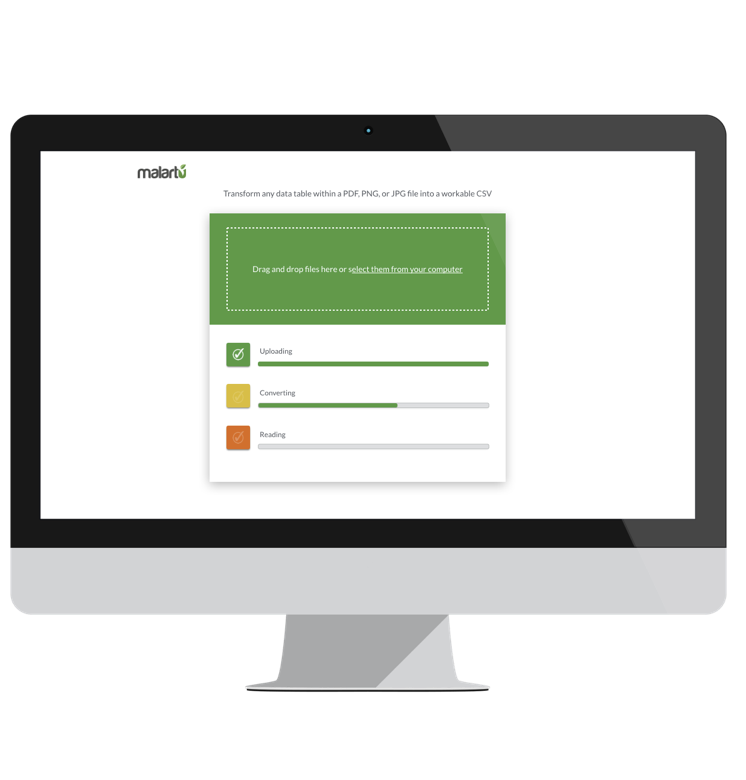The Malartu Data Maturity Model
A data maturity model is a structure used to pinpoint where an organization currently stands on their path to becoming data driven. Data maturity models are helpful in outlining the steps required to extracting maximum value from the data available to your organization while communicating that vision effectively to your team.
To better communicate how we think about creating value through data within an advisory firm, we have developed the Malartu Data Maturity Model (MDMM). The goal of the MDMM is three-fold:
To provide a simple assessment tool for where your firm currently sits
To guide milestones for implementing a data platform like Malartu
To avoid pitfalls in establishing data capabilities at your firm
The MDMM is derived from the Dell data maturity model and optimized for accountants and consultants advising small businesses. Resourceful firms like Dell apply analytics to understand correlations and connections within their operation to make better decisions, faster.
“Successful data initiatives are about answering business questions and delivering value.”
To get to the point of being truly data driven, your firm needs to know where you’ve been and where you currently stand in your path to data maturity. It’s important to follow this model because trust is built along this path - it is impossible to make important strategic decisions based on data without trust that your data and systems are reliable.
The Malartu Data Maturity Model consists of four stages:
Data Aware: Client and firm-wide data is organized in one place and there is a system in place to continue this aggregation
Data Proficient: You have identified taxonomies and metadata to organize client data in meaningful ways
Data Intelligent: You can do more than than pinpoint historical trends, you can combine granular sources and begin to predict future outcomes
Data Driven: Your business revolves around data, you can predict future outcomes and prescribe strategic initiatives.
Stage 1: Becoming Data Aware
Becoming data aware is the first step to harnessing the power of your data. Before the first stage of the MDMM, an employee of the firm likely spends more time looking for a piece of information than analyzing it. The hunt that ensues while searching for information wastes your employees time, your time, and inherently your ability to make critical decisions that can benefit the firm. There is minimal trust in the reports available to firms that have not achieved data awareness because of systematic flaws that favor human error and data inconsistencies.
Partners in stage one of the data maturity model often find themselves asking associates questions like, "What was client company X’s gross margin in Q4 last year?" While this information is probably attainable, it may take a significant amount of time to arrive at the answer.
To move forward and become data aware, two goals must be achieved.
Establish a central location to organize existing data
Identify the data sources relevant to client teams, both internally and externally.
Among more than 25 other native data integrations, the Malartu Document Reader turns any data table within an Excel file, PDF, PNG, or JPG into workable data within the Malartu system (or a csv file with our free tool). Financial statements, quarterly reports, budgets, and pitch decks can be securely sent to Malartu’s cloud platform, where the data is available to your team, securely, anywhere in the world.
Becoming data mature is not just a technological shift, but also a cultural shift. In stage one of the maturity model, it it is essential to review governance structures in place that confirm your firm is getting the metrics needed from each company to make basic strategic decisions.
The Malartu Reader
Harness the power of Malartu and Google Cloud Vision to transform any data table within a PDF, PNG, or JPG into a workable CSV table.
Step 2: Becoming Data Proficient
Firms at stage two identify taxonomies and metadata that help categorize and organize data in meaningful ways. Furthering the cultural shift necessary for achieving data maturity, stage two firms begin building trust in their data systems by understanding where data is coming from, how metrics are calculated, and how to find answers to strategic questions efficiently.
Firms leveraging Malartu become data proficient by organizing their client’s data in custom dashboards and reports. Dashboards consist of custom, sector-specific calculations and visualizations that can include anything from financial ratios to key operational data collected by your firm.
The ability to quickly toggle visualizations and display periods is particularly important to becoming data proficient because it allows for on-demand analysis. Your client’s challenges and opportunities change on a regular basis. For example, the ability to add context to a weekly meeting by quickly comparing Company X’ budget vs actual for last monthr or chart a revenue comparison to that of a similar portfolio company over the last 12 months.
Stage 3: Becoming Data Intelligent
At this stage your data is organized, accessible by decision makers, and you have the ability to quickly answer strategic decisions based on historical data.
Data intelligence requires going beyond historical analysis and moving toward predictive analysis. At this stage predicting market growth and customer demand becomes easier because we have a thorough understanding of what has lead to this demand in the past.
With historical data aggregated and organized, stage 3 advisory firms begin to ask themselves what is missing to make the most informed decision. Based on this company’s operation, what do we need to dive into deeper to make the best decisions? Data from a CRM to measure sales efficiency? Inventory data to manage costs?
Firms who are on their way to being data intelligent leverage Malartu to connect directly to data sources so that they may automate reporting and capture data at a granular level. To inform even the simplest predictive models, a firm needs enough data points to achieve real significance. Often this involves more data aggregation than what is cost effective for associates to do manually. The Malartu data platform leverages native API integrations to pull granular historical data sets from almost any system and continue to automate this reporting in the future.
With this granular data being piped into Malartu, a firm can begin to build out more sector-specific models that begin to leverage operational data, whether through in-house models or platform-provided algorithms.
Stage 4: Becoming Data Driven
Firms that are data driven make no strategic decision without data. Their entire model revolves around data being freely available, trusted, and relevant. At stage four, firms have developed a system to aggregate, organize, and analyze a plentiful amount of data and can begin thinking about how they might use this data to prescribe new strategic initiatives.
While the most difficult analysis to achieve, prescriptive analytics can be described as more quickly arriving at a strategic initiative based on what you think will happen in the future. Inherently, a firm cannot reach stage 4 or produce prescriptive analytics without first establishing descriptive analytics (stage 1 and 2) and operational analytics (stage 3). Prescriptive analysis takes your firm further by not only describing what might happen, but actions you can take to benefit from these changes, and what might happen from making changes.
An example of how Malartu can help your first become data driven and begin to think about prescriptive analytics is to compare the performance of actual data to forecasted data, or actual data to internal benchmark sets. Forecasting key performance indicators that incorporate driving factors for financial outcomes (operational data), you can set new strategic initiatives for a client. If you understand that for every 10 sales calls made, 1 new customer is booked, you can help your client forecast not just sales goals but cashflow issues in hiring new sales talent, costs for managers, and establishing a more robust benefits plan.
Stage 4 firms can also leverage their broader data set, such as data collected across a portfolio of similar companies, to benchmark clients vs top-performers. Data driven firms create exponential value from their data by being able to leverage data collectives as a whole.
While no model is infallible, achieving stage four data maturity is an immense competitive advantage to other firms, and one we are excited to help our customers realize.
Why Malartu?
When thinking about a data platform for your advisory firm there are a number of important factors to consider including aggregation, visualization, security, and interoperability. Here are a few factors that put Malartu in a league of our own:
A true Technological Advantage
Our platform doesn’t rely on humans to enter data manually on behalf of your firm. Shifting data aggregation from your team of analysts to an outsourced team of analysts doesn’t effectively mitigate the risk of human error, so we have built a true technological advantage for data aggregation by leveraging cloud-based APIs and machine vision to automate data transposition and data entry.
Flexibility
Every team has unique challenges and different industries have different drivers for success. There is no standard report that serves the need of every company. Malartu’s data aggregation process and bespoke visualization features allow firms to completely customize their analysis as well as create value from the broader data set.
This reporting flexibility promotes the aggregation and reporting of non-financial data like sales, operations, and marketing data. Aggregating and analyzing this data is imperative to becoming data driven since this data tells the story behind financial outcomes.
Achieving Data Maturity
We didn’t just build Malartu to improve on your current processes, we built our platform to transform our partners into data driven value creators. Most of your competitors are only data aware. With Malartu you can truly move from where you are today to where you want to be: a data driven organization.





